



















































HOW TARGETED PROGRAMS EMPOWER FIRST-GENERATION




TIPS TO SHINE FOR COLLEGE INTERVIEWS








































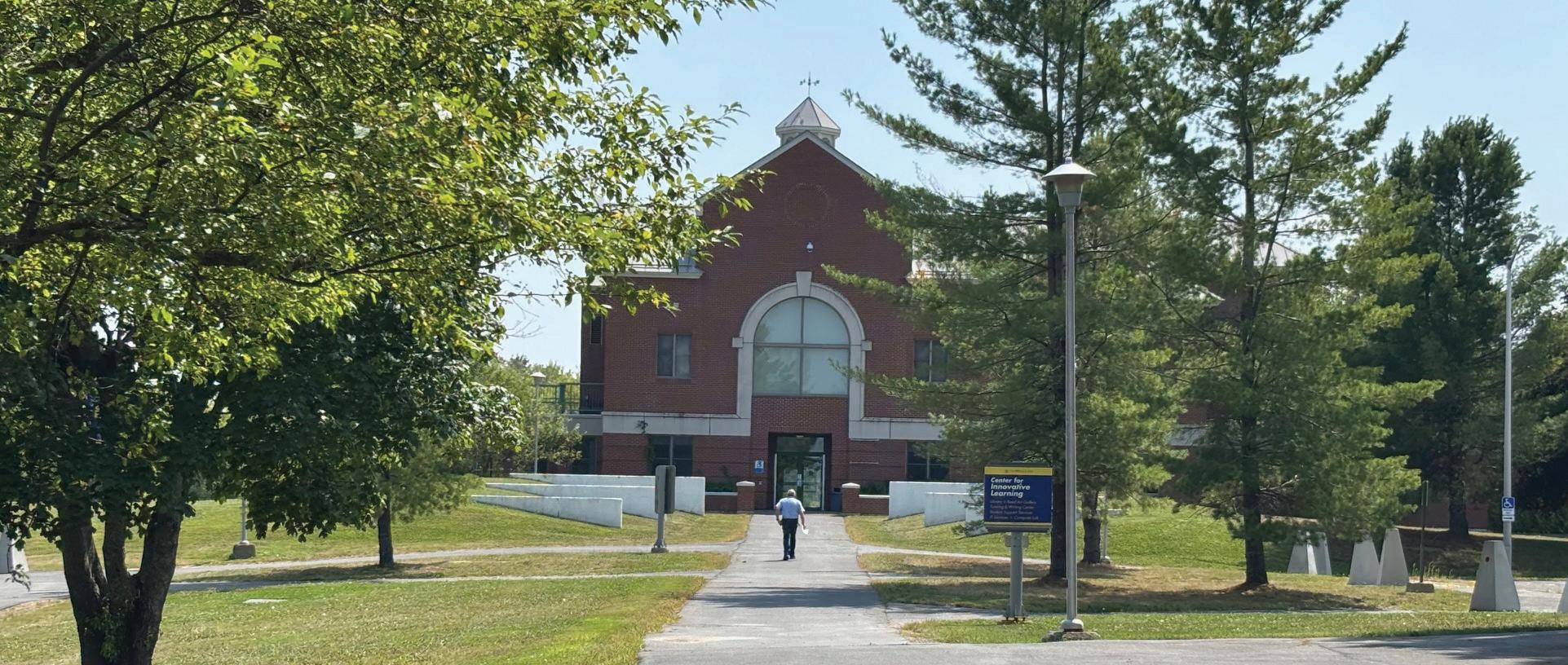
BY JEN LYNDS
AUBREY KENNEDY WAS NERVOUS AND THRILLED when she first stepped into a classroom at the University of Maine at Presque Isle (UMPI). The 33-year-old English major sought other opportunities after high school before enrolling at the university in 2022.
Kennedy will become the first person in her family to earn a bachelor’s degree when she graduates in the spring, and credits her achievement to hard work, dedication, and the support UMPI offers to first-generation students.
Mary Kate Barbosa, UMPI’s director of student support services, said the definition of first-generation students is those whose parent(s) or legal guardian(s) have not completed a bachelor’s degree.
“Our first-generation program works in tandem with the student support services program,” Barbosa said. “Student support services must serve low-income, firstgeneration students with disabilities, or any combination of those.”
Along with the first-generation program, federally funded TRIO programs serve more than 3,000 students across the state, according to Karen Keim, director of TRIO’s Maine Educational Opportunity Center and Maine Educational Talent Search at the University of Maine in Orono. The TRIO programs equip underprivileged people for admission to, retention in, and completion of higher education. The programs assist students with everything from understanding financial aid and college terminology to navigating academic setbacks and more.
“In some families, college is not expected like it is in other families,” she explained. “So when you have that first student who attends, it can be a real fish out of water experience.”
Kennedy agreed with that, especially coming to UMPI as a non-traditional student. She recalled the questions that ran through her head in the weeks before classes began.
“Would I be wise enough to understand the broad range of subjects I would be taking?” she recalled thinking. “Would I write my papers correctly? Would I feel too old to take part in the campus community?”
Those questions are common, according to Keim.
“Every first-generation student faces the same questions and problems that every other student faces,” she explained. “But the difference is that when first-generation students have questions, they don’t feel like they have any resources.”
Emily Mason, who graduated from the University of Maine School of Nursing four years ago, agreed.
She recalled being “really supported” by the TRIO programs.
“Since my parents had never been to college, they could not help me,” she explained. “I did not know a lot of the terminology. Those sorts of answers were not just a phone call away.”
Back at UMPI, Barbosa added that first-generation students often wrestle with what she calls “I’m the first person who” thoughts.
“As in, ‘I’m the first person who doesn’t understand what these financial aid documents mean, or I am the first person who has never checked out a book from the library,’” she said. “That is something I hear a lot.”
To counter this, Barbosa said that she sets up a panel during UMPI student orientation that includes a broad spectrum of students from different areas, from different majors, and who have had different experiences.
“They talk about what they were worried about when they first came to college,” she said. “I hope this sets our students at ease.”






BY EMILY MORRISON













HEN IT COMES TO DECIDING WHERE TO GO TO SCHOOL, our children have been as different as apples, oranges, and cantaloupes. My oldest made a spreadsheet, my middle child watched YouTube, and my youngest, who graduates this year, opened some mail. They all took a different approach to looking at colleges, but responded the same way whenever I asked them where they were looking.
“I don’t know, but I’ll figure it out on my own.”
So, I decided to hone my approach this last time around and share some strategies that have saved me a few tears and eye-rolls this fall.

THEM ISOLATE THEIR TOP PRIORITY.
Every kid has something that turns their dials up to 10. As a parent, you know what seems most important to your child. Share what you’ve noticed, but also ask them what’s on their list of priorities. Whether they write down those “must have” attributes or talk it through with you, helping your kiddo figure out what to focus on is the first step. Do they want to go somewhere small or big? Rural or urban? Liberal arts or trade school? Online or in person? Near or far? Once you have a starting point, it’s a whole lot easier to begin the search.

It may seem obvious, but you’re not the one signing up. You can suggest some good schools, but they’ll have to figure out whether or not they’re a good fit. Taking virtual tours and spending time online helps, but if your child picks a school some distance away, it might be easier to set up a Zoom meeting with a current student or an admissions counselor. By all means, help them network. Again, you can do some of the research, but they have to be a part of the process, or they will have no ownership in the decision.

Unfortunately, the cost of a college education is way too high in this country. I can’t speak globally, but for my three kids to attend a moderately priced American university, my husband and I need to find a way to come up with roughly $200,000 (and that’s after their loans, financial aid, and scholarships), so the sooner you have a conversation about what’s doable, the easier it will be to make a list of possible schools. Discuss how much you’ll pay and/or how much you expect your kiddo to pay, and make sure you submit the FAFSA and determine your estimated contribution.


The earlier, the better. It’s nice to know what options are available before they have to commit. Our first child applied early decision, as did our second, but it will be a Christmas miracle if our youngest sends in his applications by January. If you encourage your child to submit their applications in the fall, they will thank you when their friends decide April vacation is a good time to start thinking about college. Also, remind them it’s okay to apply to a “reach school.” It’s okay to dream big, but start dreaming early!

Figuring out where to go to school feels like it’s a huge decision, but honestly, places are what you make them. What they put into school will determine what they get out of it. Wherever they decide, your child will find they can be happy almost anywhere. And so can you, as long as they call home once in a while.
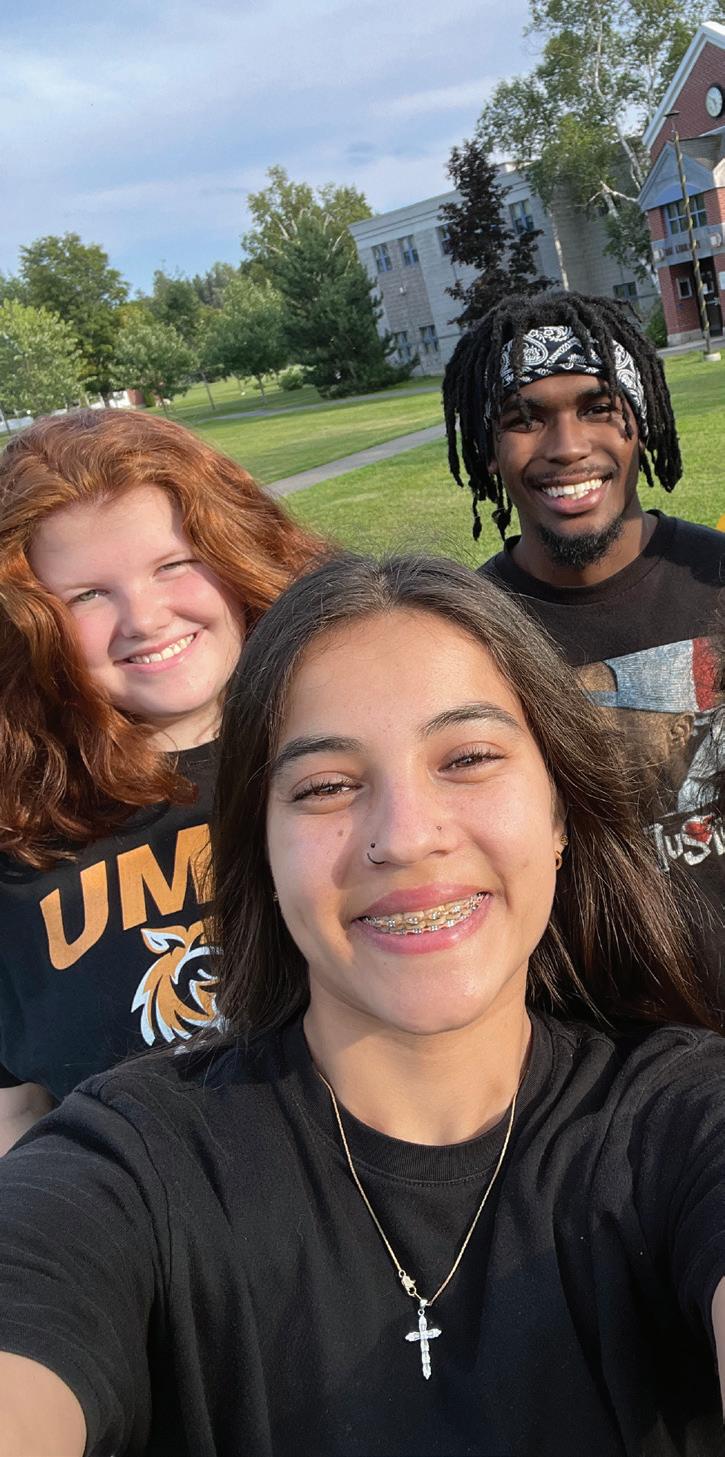









BY JOANNA O’LEARY
FIRST, A WORD, OR DISCLAIMER — my credentials with regard to giving advice on college interviews are derived from being on both sides of the table. For 15 years, I served as an alumna interviewer for my Ivy league undergraduate institution whose name I will not officially disclose but whose official color is crimson and mascot is a pilgrim. Capeesh? Prior to that, I myself completed three interviews for said aforementioned institution and secured admission when the acceptance rates were historically low (11%). From that personal experience and then in the course of interviewing dozens of (mostly) extremely qualified candidates for some very coveted spots in the freshman class, I have learned a few things about how to approach college interviews.
Before the interview, prepare answers for all those standard questions you are likely to be asked. These include but are not limited to: “Why do you want to go to this college?”; “What contributions or unique experiences would you bring as a member of the freshman class?”; “What is a significant challenge or obstacle you have faced?”; and “Describe an accomplishment of which you are proud.”
Someone wiser than me who also is a seasoned interviewer once said nailing any interview is a matter of matching your great life stories with the appropriate questions. To that end, go to the college interview with an arsenal of anecdotes that illustrate your best traits, noteworthy scholarly achievements, and life experiences. If possible, do at least two mock interviews with a trusted friend or family member and solicit their honest feedback.

Colleges are as diverse as their applicants, but in general, admission counselors are looking for students who are intellectually curious, serious about committing to higher education, and who will make contributions to student life. They like to see candidates who excel inside and outside the classroom and who have extracurricular pursuits in various forms (football! painting! bee-keeping! volunteering!). However, being a jack-of-all-trades and a master of none is not as good as being “well lop-sided,” i.e., having a few selected passions and pursuing them vigorously.
When it’s time for the actual interview, first, dress the part: formal is always better though no need to go over the top (i.e., cocktail dresses and tuxedos). Business suits with well-chosen jewelry (less is more) work well for the gamut (guys, gals, and our nonbinary brethren). It should go without saying, but attend the interview by yourself. Do not bring your one or both of your parents, your best friend, or your dog (unless it’s a support animal). Also, do not think your interviewer will not notice if your mother is “casually” seated at an adjacent table looking on.
Arrive early and greet your interview with a firm handshake (a ‘dead fish’ grip suggests you are unenthusiastic) and a hearty hello (“Nice to meet you!”) while looking him/her/them straight in the eye. Your interviewer is likely to return the favor and follow-up with something akin to, “How are you today?” Answer only in the positive (“Great, thank you”) even if you are so nervous you could cry or (as in the case of one of my interviewees) your boyfriend has dumped you minutes before by text message. A college interview is not a therapy session nor is it your time to unload your pet peeves, pedestrian health issues (“I’ve got this wart...”), etc. Over the course of the interview, maintain good eye contact, speak slowly and carefully, and try not to ramble. Never clap back to a challenging query with “That’s a good question.” The interviewer knows it’s a good question and that response makes it look like you’re stalling. Which you probably are. Instead, take a breath and think; there’s no shame in pausing a beat or two before answering a tough question.
At the conclusion of the interview, the interviewer will likely ask if you have any questions. You always should have questions prepared. There are dumb questions you can ask, many in fact, but for the scope of this article let’s focus on the ones regarding the institution or program to which you are applying that can easily and readily be answered by cursory research and/or search engine queries. Examples include: how much is the tuition? How many students are from out of state? I once had an interviewee ask if the university was co-ed. Not only did this tell me she had done little to no research but it also cast doubt on her so-called “great interest” in the school. If you are so smitten with a particular college, you should want to learn more about it.
A good question is one that demonstrates your knowledge of the school and delves into greater detail not readily apparent from the promotional materials. For example, if the school’s study-abroad program has attracted your eye, read all available materials associated with that program and identify the gaps in information. Perhaps, there’s little information (and this is often the case) about how credits from the partner university transfer to your home university (and vice versa), or statistics regarding post-graduate job placement rates for students who opt for these experiences.
Finally, you may not feel confident in your candidacy but in the words of Kurt Vonnegut (a college dropout, btw), “We are who we pretend to be.” Walk the walk and talk the talk of a qualified applicant, i.e., emulate the person you strive to become… and you will.
When the interview is over, give the interviewer another firm handshake and thank him/her/them for the opportunity. Do not linger and do not follow them to their car (this also happened to me and it was, as you might expect, very off-putting). Within 24 hours, send the interviewer an email (or even better — a hand-written note) reiterating your gratitude and providing any additional materials requested.
Don’t beat yourself up if you think the interview went fine and you are not admitted. It probably did. College admissions are very competitive and sadly, sometimes completely inscrutable. What you did (or did not) in the years leading up to your application have a far greater impact in the long run than the hour you spent in the interview.
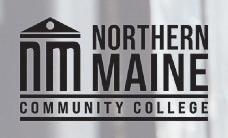
























MAINE’S COMMUNITY COLLEGES play a pivotal role in the educational landscape of Maine, providing affordable, accessible, and high-quality education and training, and serving learners with a vast array of aspirations at various stages in their career development.
Maine’s seven community colleges offer over 300 degree and certificate options, 200 short-term pre-hire workforce programs, and work with more than 2,000 Maine employers to expand Maine’s workforce. Below are some examples of exciting initiatives available through Maine’s community colleges.
Maine’s community colleges offer the lowest tuition and fees in New England. For nearly half of our students, Pell Grants and Maine State Grants cover the full cost of tuition and fees. For many, grants cover significantly more.
Great news: you don’t have to be a full-time student to qualify for financial aid. We have several scholarships for part-time and working Mainers to help you get where you want to be.
High school students can take up to 12 college credits tuition-free every year through our Early College programs. These courses will challenge you, spark your interest, and prepare you for college.
Learn More: Mccs.me.edu/high-school
FREE COLLEGE
Don’t miss out on the Free College Scholarship! If you graduated high school (or earned the equivalent of a

high school diploma, like a GED or HiSET) between 20232025, enroll now and receive free tuition at any of Maine’s seven community colleges. You can choose from any of our degree or certificate programs. From core classes to hands-on training, there are hundreds of programs to choose from.
To qualify, students must:
• Pursue a degree or certificate at least part-time
• Fill out the FAFSA and use any grant aid first
• Live in Maine while enrolled
Learn more: FreeCommunityCollegeMaine.com
SHORT-TERM
Have you always been interested in a particular career but don’t have much time to train? Fast-track your future with low- or no-cost short-term training programs. Our seven community colleges have over 200 workforce programs designed to get you the skills you need to start a career you’re passionate about. These programs have been built with industry partners to identify what’s required to get started, and when students are ready, they will have already earned credits toward a certificate or degree program in that field.
Programs take just weeks and months to complete and are offered at little or no cost to anyone who lives in Maine. Some offer weekly stipends, housing, or guaranteed interviews with companies that are hiring.
Take advantage of hybrid, night, and weekend schedules, stackable badges and certificates, an onramp to a degree program, and an affordable way to learn a new skill.
Learn more:alfondcenter.mccs.me.edu/shortterm-training
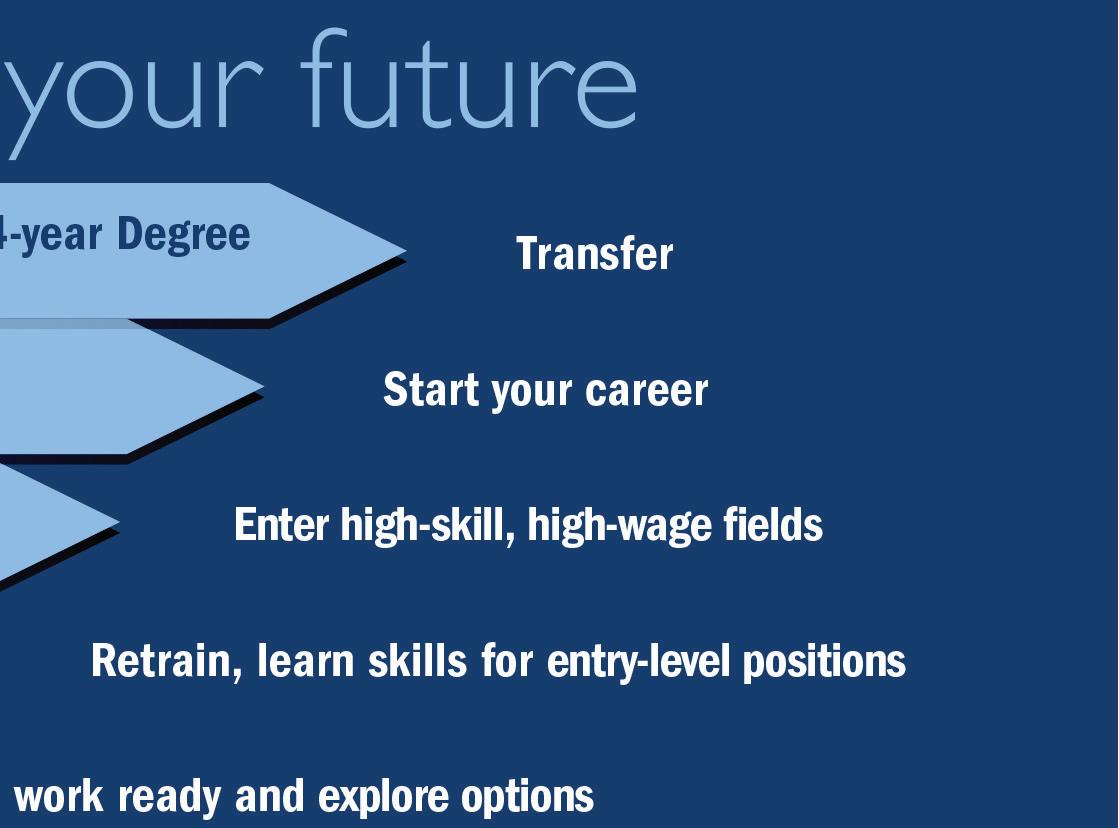

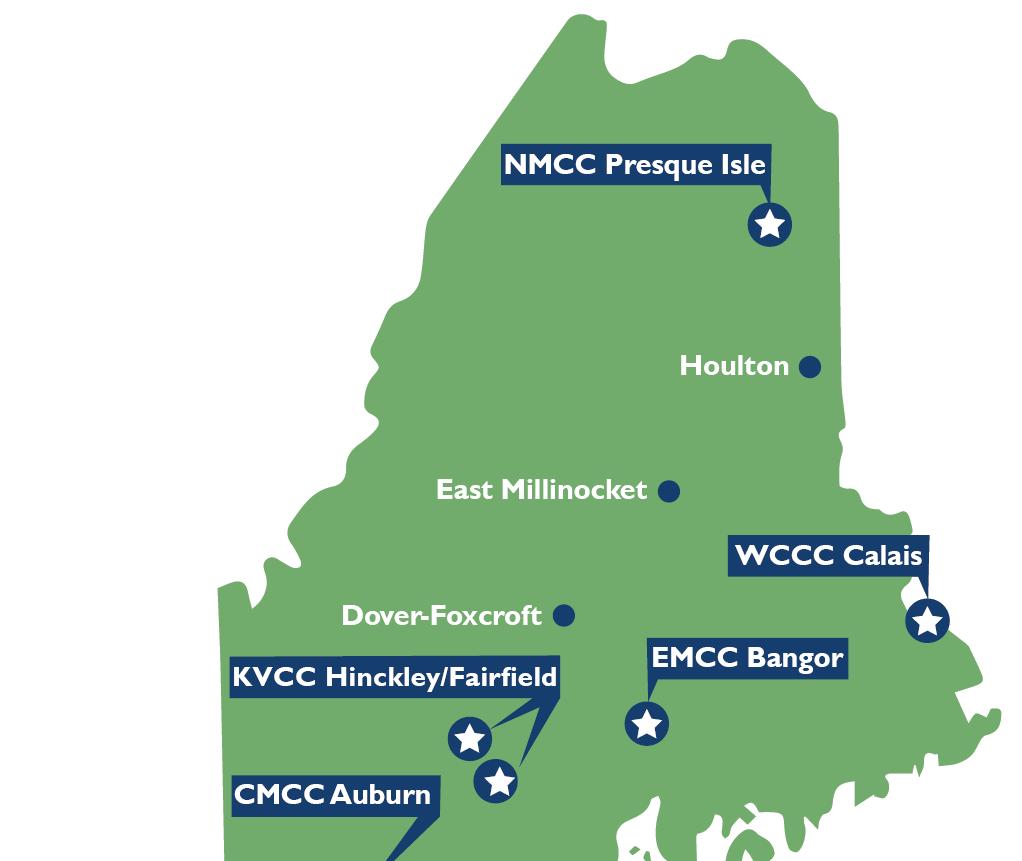
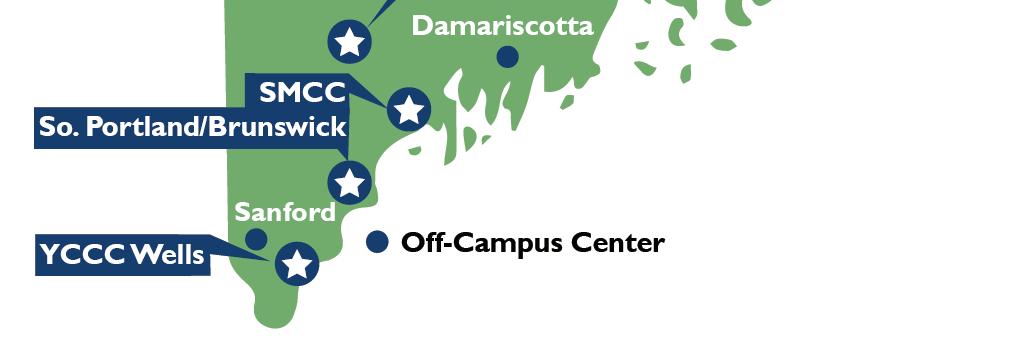
Our community colleges’ Workforce and Professional Development teams support lifelong learning for Maine people and businesses. For individuals, we create pathways to the next career goal. For employers, we listen to your needs, customize training, and help build a skilled workforce for today and tomorrow. We partner with more than 2,000 Maine employers and offer up to a $1,200 match per employee to support training and professional growth.
Learn more: MCCSworks.com
From trades to transfer, Maine’s seven community colleges provide high-quality, relevant, hands-on learning at a fraction of the typical college cost. Build your future here, choosing from a diverse mix of programs offered through short-term training in under a year, one-year certificates, two-year associate degrees, and advanced certificates.

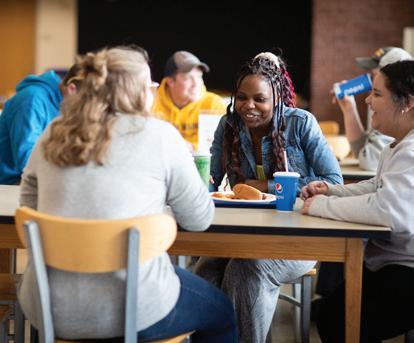














COLLEGE DAYS ARE EXCITING, a time for new experiences and new relationships. However, adjusting to the many changes associated with attending college can be stressful and may require support from friends, family, and others.
A 2023 Gallup poll of 6,000 college students revealed one-third of the college students surveyed had considered dropping out of college because of emotional stress and mental health struggles. Many students considered dropping out of college because they felt like they didn’t belong, and others considered disenrolling because of college costs.
Lead Counselor at Husson University Wellness Center Nichole Proulx LMFT said new college students sometimes struggle with the transition to a more independent lifestyle. Things are less scheduled for them and they have more time to fill, said Proulx. They may have difficulty getting into a consistent routine that helps them accomplish everything they need to get done and maintain their own wellness, she said. They might not get enough sleep or eat healthy meals or nurture their relationships.
“Other stressors can include feeling homesick, being overwhelmed by academic rigors, creating new friendships and making meaningful connections, navigating unfamiliar systems, including managing their own health issues without the daily support of family,” Proulx said.
Husson and other college officials encourage students to engage in as many oncampus activities as possible, which can help them make new connections and feel more at home. Isolation can make their adjustment to their new environment much more difficult. Husson officials also recommend reaching out for support, whether from family and friends or from campus resources or counseling services.











































BY WANDA CURTIS



“Students should reach out for help if they don’t feel like things are improving or if they feel their mental health is impacted,” Proulx said. “Discomfort is normal, it is part of the adjustment process. Difficulty or inability to function with daily tasks or responsibilities is a significant sign that something is wrong and they should seek out the services at the counseling center. Students should always seek help if they have any thoughts of self harm.”
Husson students can contact Proulx at proulxn@husson.edu or call (207) 9417990. They can also contact the Wellness Center’s confidential general email at studenthealth@husson.edu or call (207) 941-7625.
Angela Fileccia LCSW, director of the University of Maine Counseling Center in Orono, said they stress normalcy with students. They explain it’s normal to feel homesick, normal to feel stressed by academic and financial pressures, and normal to feel nervous about forming new relationships. They also let students know that it’s okay to seek support and they shouldn’t be ashamed about doing that, if needed.
“There’s never a wrong reason to reach out,” Fileccia said.
Their counseling center is open Monday-Friday 8 a.m.-4:30 p.m. The contact number is (207) 581-1392. There’s a therapist on call 24/7 during the academic year. Students can call the UMaine Police Department at (207) 581-4040. They can support the student and contact the on-call therapist, Fileccia said. Students can also call the Maine Crisis Hotline at 1-888-568-1112.
UMaine also advises students to get involved in on-campus activities. They have more than 200 on-campus clubs geared to students’ interests.
“There’s something for everyone,” Fileccia said. “We even have a bee-keeping and a lumber jack club.”